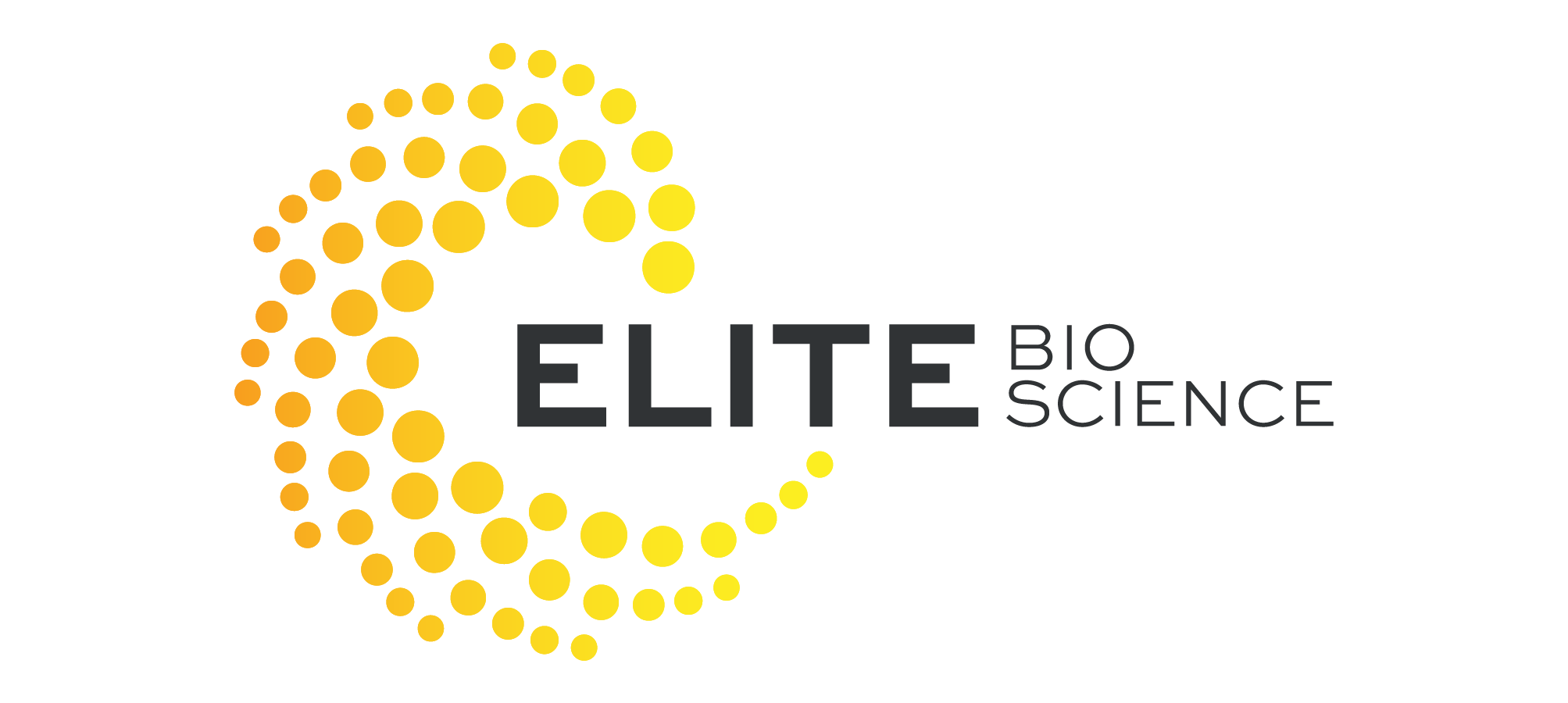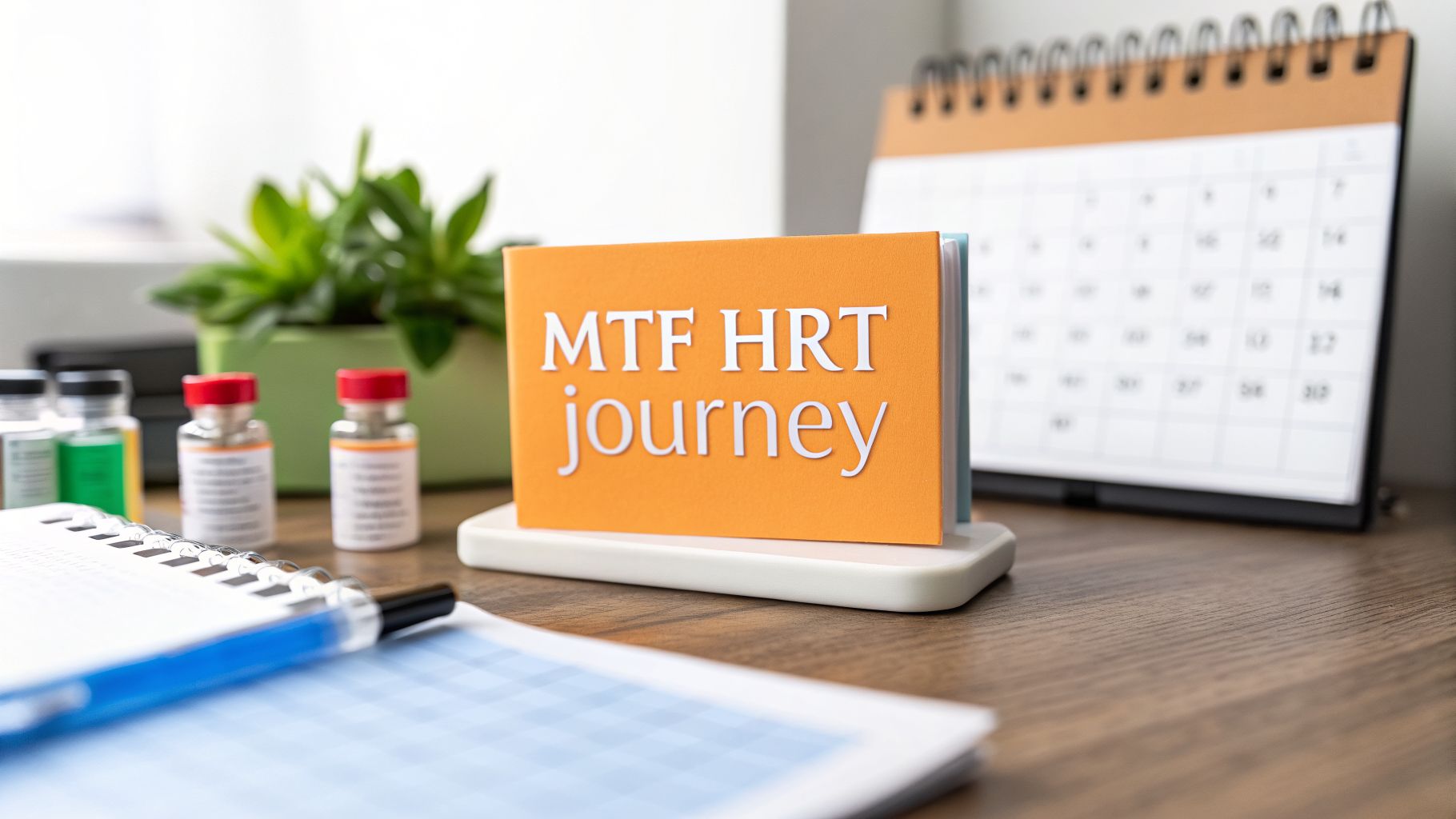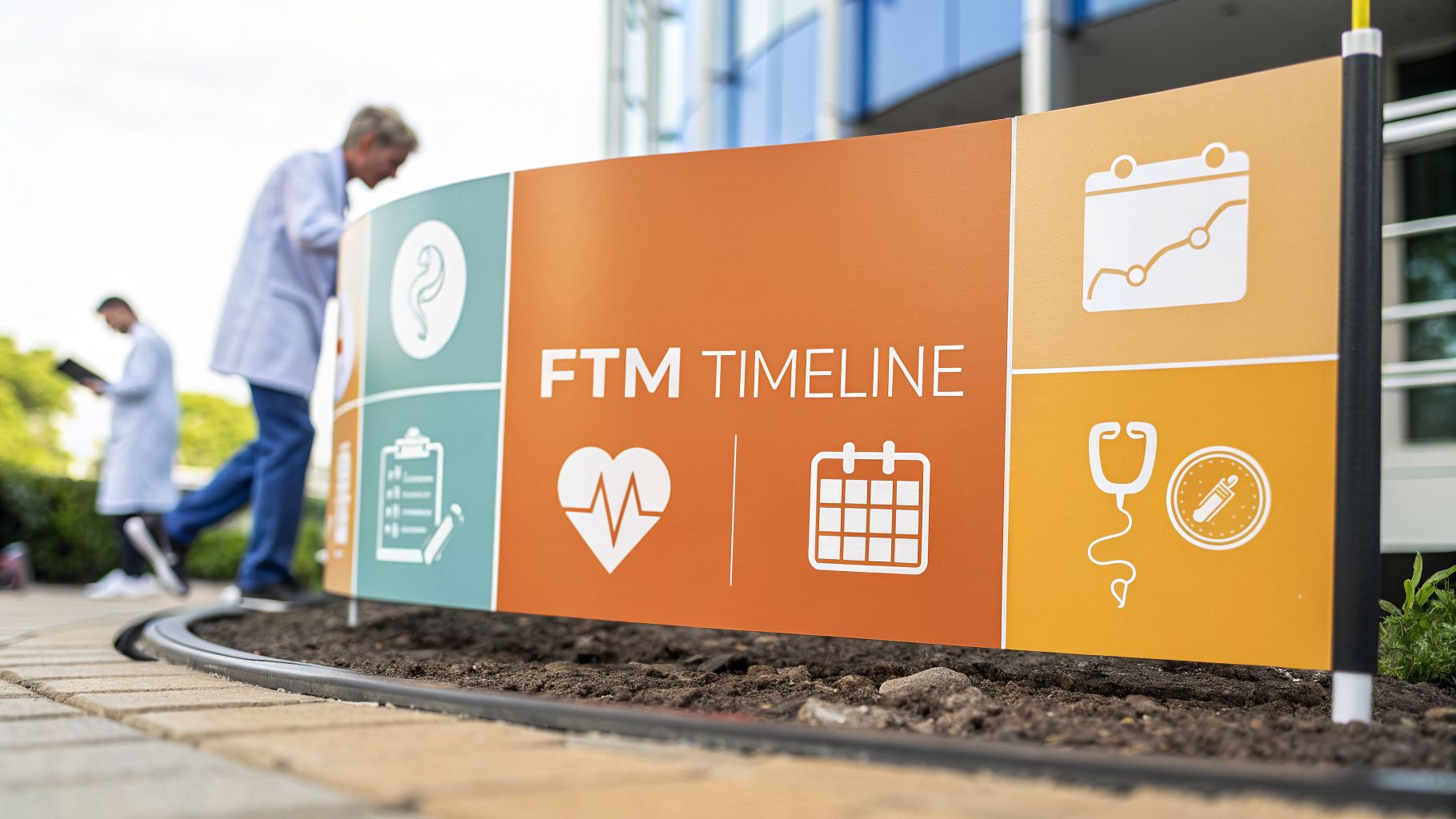A Guide to the Best Vitamins for Women’s Health
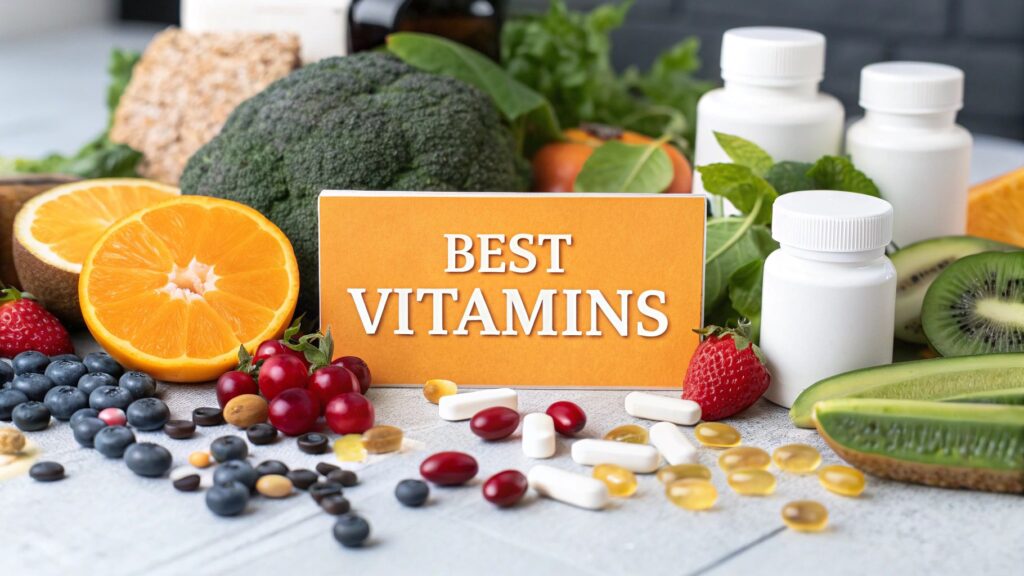
Let’s get one thing straight: the one-size-fits-all approach to nutrition just doesn't work for women. A woman's body operates on a completely different rhythm, shaped by distinct and powerful life stages. From menstruation and pregnancy all the way through menopause, your nutritional needs are constantly evolving. Understanding the best vitamins for women's health means recognizing that what your body needs today might be different from what it needs next year.
Why a Woman's Nutritional Needs Are Different
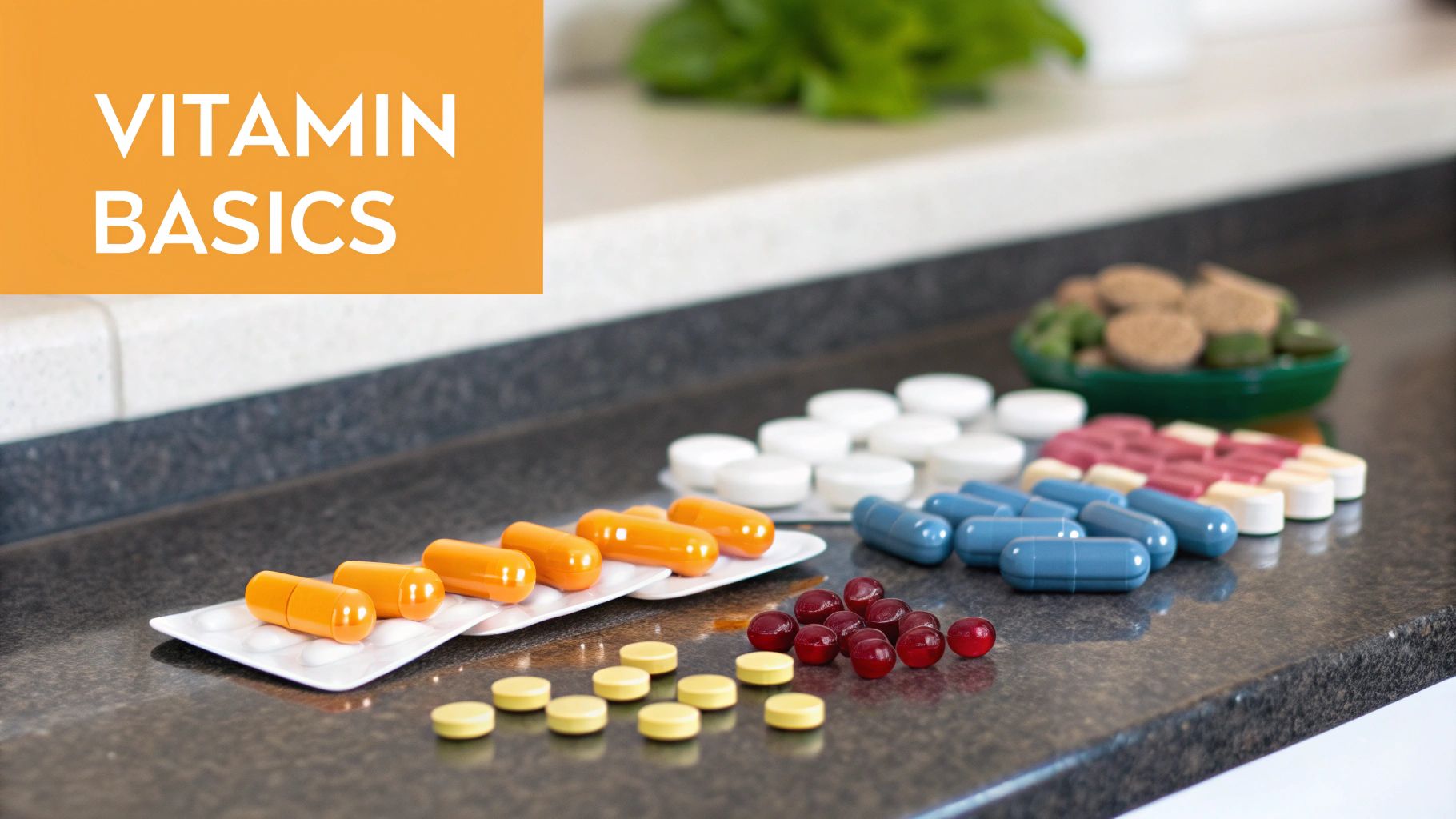
Think of your body's nutritional needs like a finely tuned instrument. What sounds perfect in one season of life needs careful adjustment to maintain harmony in the next. A man’s nutritional baseline stays relatively stable throughout his adult life, but a woman’s physiology is defined by cycles and major transitions, driven primarily by fluctuating hormones and unique physical demands.
Take the menstrual cycle, for example. The monthly blood loss directly increases the need for iron to prevent the kind of fatigue and anemia that can leave you feeling drained. Pregnancy and breastfeeding create an incredible demand for nutrients like folate, iron, and calcium to support not just you, but a whole new life. Later, as menopause approaches, hormonal shifts can speed up bone density loss, making calcium and Vitamin D more critical than ever.
The Role of Hormones and Life Stages
These aren't just minor tweaks; they represent fundamental shifts in your body’s operating system. Each stage brings a new set of health priorities, and your vitamin intake needs to reflect that. This idea of nutritional individuality is the key to maintaining long-term wellness.
- Menstruation: The focus is on replenishing iron stores lost each month.
- Pregnancy: The critical need shifts to folate to prevent birth defects and calcium for skeletal development.
- Menopause: The requirement for Vitamin D and calcium skyrockets to combat osteoporosis risk.
The connection between hormones and nutrition is profound. A well-nourished body is far better equipped to manage the hormonal tides that can impact everything from your mood and energy levels to your bone health.
To truly support your well-being, you have to look beyond the generic daily value percentages on a label and consider where you are on your life's journey. By understanding the link between your hormones and nutritional needs, you can start making smarter, more effective choices. For those wanting to dive deeper, learning about achieving hormonal balance for women provides powerful insights into how targeted nutrition can support your body's stability.
To give you a quick, scannable overview, the table below breaks down the key vitamins that take center stage during different phases of a woman's life. Think of this as your cheat sheet before we dive into the more detailed recommendations.
Key Vitamins for Women at a Glance
| Life Stage | Key Vitamins | Primary Health Focus |
|---|---|---|
| Reproductive Years | Iron, Folate (B9), B12 | Energy, Red Blood Cell Production, Fetal Development |
| Pregnancy & Lactation | Folate, Calcium, Vitamin D, Iron | Fetal Health, Bone Health for Mother and Baby |
| Perimenopause & Menopause | Vitamin D, Calcium, B Vitamins | Bone Density, Mood Support, Energy Regulation |
| Post-Menopause | Calcium, Vitamin D, Vitamin B6 | Bone Strength, Cognitive Function, Heart Health |
This snapshot makes it clear how priorities shift over time, setting the stage for the more in-depth guidance that follows.
The Foundational Five Vitamins for Women

While every woman's health journey is unique, a handful of nutrients are the non-negotiable bedrock of her well-being. These are the vitamins and minerals that play such a central role in the body’s daily operations that you’ll quickly feel their absence. Think of them as the five pillars supporting your entire wellness structure—if one weakens, the whole system can start to feel unstable.
We’re going to break down these foundational five—Vitamin D, Vitamin B12, Iron, Calcium, and Folate (B9)—not just as names on a supplement bottle, but as active players in your health story. Understanding what they do is the first step toward optimizing your vitality at every age.
Vitamin D: The Sunshine Guardian
Often called the "sunshine vitamin," Vitamin D really acts more like a hormone than a typical vitamin, regulating hundreds of processes all over the body. Its most famous role is as a gatekeeper for calcium, unlocking the door so your body can absorb it to build and maintain strong bones. Without enough Vitamin D, calcium simply can’t do its job, no matter how much you get in your diet.
This relationship is a big deal for women, who are more susceptible to bone density loss over time. But its influence doesn’t stop at the skeleton. Vitamin D also supports a robust immune system, helps regulate your mood, and contributes to healthy muscle function, making it a cornerstone of the best vitamins for women's health.
Despite its importance, deficiency is incredibly common. The recommended dietary allowance (RDA) for vitamin D is 600 IU daily for females aged 13-70 and 800 IU for those over 70. Yet, many women fall short, especially after menopause, which has been linked to higher risks of heart disease, muscle weakness, and stress fractures. You can read more about these crucial findings on Vitamin D for women's health.
Vitamin B12: The Nerve and Energy Protector
Imagine Vitamin B12 as the chief electrician for your body’s nervous system. It’s absolutely essential for creating the protective sheath that covers your nerves, ensuring clear and rapid communication between your brain and the rest of your body. It’s also a key player in making red blood cells, which carry oxygen everywhere you need it.
When B12 levels get low, you might feel it as fatigue, brain fog, or a strange "pins and needles" sensation. Women following plant-based diets are at a higher risk for deficiency, since B12 is found almost exclusively in animal products.
- Top Food Sources: Clams, beef liver, trout, salmon, and fortified cereals.
- Deficiency Signs: Persistent fatigue, memory issues, and pale skin.
Iron: The Energy Transporter
If B12 is the electrician, then iron is the fleet of delivery trucks that transport oxygen all over your body. It's a core component of hemoglobin, the protein in your red blood cells that grabs onto oxygen in the lungs and carries it to every single cell, from your brain to your muscles.
Without enough iron, this delivery system grinds to a halt, leading to iron-deficiency anemia. The result? Profound fatigue, weakness, and shortness of breath. Women of reproductive age are particularly vulnerable due to monthly blood loss during menstruation, making iron one of the most vital minerals for just getting through the day with energy to spare.
A common misconception is that feeling tired is just a normal part of a busy life. For many women, however, persistent exhaustion is a classic sign that their iron stores are depleted.
To get the most out of your iron intake, try pairing iron-rich foods with a source of Vitamin C. For instance, adding bell peppers to a steak salad or squeezing lemon juice over spinach can significantly boost how much iron your body actually absorbs.
Calcium: The Bone Builder
Calcium is synonymous with strong bones and teeth, and for good reason. A staggering 99% of your body's calcium is stored in your skeleton, providing its structure and strength. Think of your bones as a calcium bank; you make deposits throughout your youth and early adulthood.
For women, this "bank" becomes critically important around menopause. As estrogen levels decline, the rate of bone withdrawal speeds up, increasing the risk for osteopenia and osteoporosis. Maintaining adequate calcium intake throughout your life ensures your bone bank is as full as possible, giving you a stronger foundation for your later years.
Key Calcium Sources
| Food Group | Examples |
|---|---|
| Dairy | Yogurt, cheese, and milk |
| Leafy Greens | Kale, collard greens, and broccoli |
| Fortified Foods | Tofu, orange juice, and plant-based milks |
| Fish | Canned sardines and salmon (with bones) |
Folate (B9): The Cell Creator
Folate, the natural form of Vitamin B9, is the ultimate builder. Its main job is to help create new cells, a process that is fundamental to life itself. It’s essential for making and repairing DNA, which makes it indispensable during periods of rapid growth—like pregnancy.
This is why folate is so heavily emphasized for women of childbearing age. Getting enough before and during pregnancy dramatically reduces the risk of serious neural tube defects in a developing baby. But its role doesn't end there; folate also supports red blood cell production and helps maintain healthy brain function throughout a woman's life.
How Your Vitamin Needs Evolve Through Life
A woman’s body is a dynamic landscape, constantly adapting to new phases and challenges. The nutritional strategy that works in your twenties won’t cut it in your fifties. Recognizing how your needs evolve is the key to finding the best vitamins for women's health and maintaining vitality through every single decade.
Think of it like packing for a long journey with changing seasons. You start with the essentials, but you add a warmer coat for winter and lighter clothes for summer. In the same way, your nutritional toolkit requires strategic updates as you move from your teenage years through menopause and beyond.
The Teenage and Early Adult Years
During the teenage years and early twenties, your body is still building its foundational strength. This is prime time for "banking" bone density, a process that relies heavily on Calcium and its essential partner, Vitamin D. Establishing strong bones now provides a crucial buffer against the natural bone loss that happens later in life.
Iron also becomes a major player once menstruation begins. Regular blood loss can easily lead to depleted iron stores, causing the fatigue and brain fog that are often dismissed as normal teenage moodiness or academic stress. Ensuring a steady supply of iron helps build healthy red blood cells and supports the energy you need to keep up.
The Reproductive and Pregnancy Years
As women move into their reproductive years, the nutritional focus shifts to support both personal health and the potential for a new life. Folate (Vitamin B9) rockets to the top of the list. It is absolutely critical for preventing neural tube defects in a developing fetus, making it a non-negotiable for any woman who is or might become pregnant.
This period also places a huge demand on the body's resources. Pregnancy and breastfeeding require a serious uptick in several key nutrients to support both mother and child:
- Iron: Blood volume can increase by nearly 50% during pregnancy, dramatically raising the need for iron to prevent anemia.
- Calcium and Vitamin D: These are essential for the baby's skeletal development and to protect the mother's own bone density from being depleted.
- Choline: A lesser-known but vital nutrient that supports the baby's brain and spinal cord development.
Recent data shows some concerning shifts in what women are eating. Over the past two decades, women of reproductive age in the U.S. have seen their intake of iron and vitamin C drop significantly, even as calcium and magnesium intake has gone up. The inadequacy of iron intake, for instance, rose by 4.9 percentage points, a shift that could have real consequences. You can learn more about these micronutrient trends in women's health.
Navigating Perimenopause and Menopause
The transition into menopause marks one of the most significant nutritional shifts in a woman's life. As estrogen levels decline, the body's ability to retain calcium and build bone diminishes, which speeds up bone loss. This is where the foundation you built in your younger years truly matters.
This isn't just about preventing osteoporosis; it's about maintaining strength, mobility, and independence. The right nutrients act as a support system for your body as it navigates this powerful hormonal change.
The focus sharpens on bone-protective nutrients. The recommended daily intake for calcium increases, and Vitamin D becomes more important than ever to make sure that calcium is properly absorbed. B vitamins, particularly B6 and B12, also become more important for supporting mood, cognitive function, and energy levels, all of which can fluctuate during this time.
This infographic shows how daily recommendations for key minerals like iron and calcium change from pre-menopause to post-menopause.
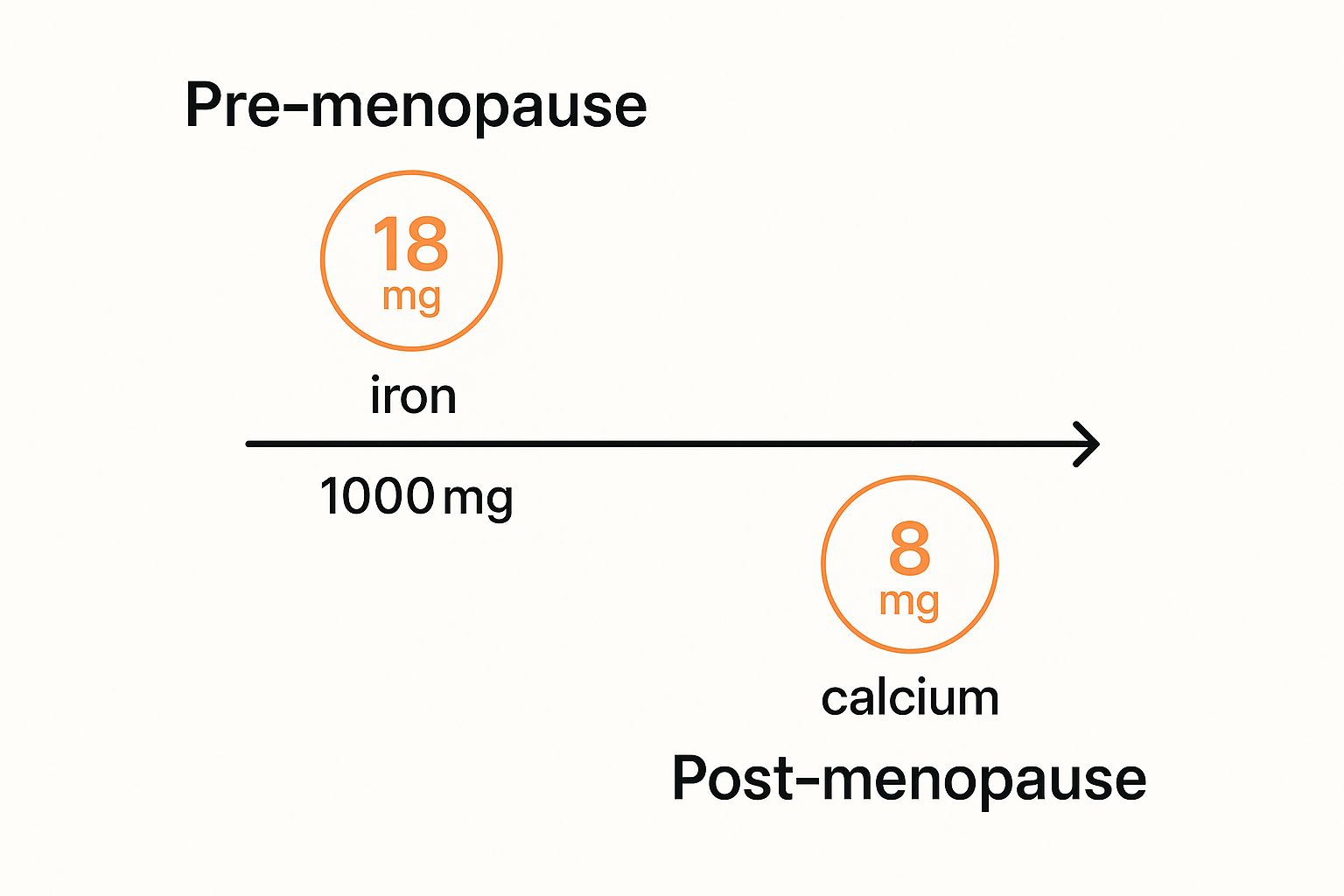
As you can see, the need for iron drops significantly after menstruation stops, while the requirement for calcium rises to counteract accelerated bone loss.
Thriving in Post-Menopause and Beyond
After menopause, bone health remains a primary concern. Women over 50 are at a much higher risk for osteopenia (low bone mass) and osteoporosis, conditions that can lead to debilitating fractures. The daily calcium recommendation often increases to 1,200 mg, and Vitamin D requirements may rise to 800 IU or more to maximize absorption and support skeletal strength.
Beyond bones, other needs come to the forefront. Vitamin B12 absorption can decrease with age, making supplementation more important for maintaining nerve health and cognitive function. Additionally, Magnesium plays a vital role in over 300 bodily functions, including muscle relaxation, nerve signaling, and blood pressure regulation, making it a key mineral for overall wellness in later years.
By understanding these evolving needs, you can proactively adjust your diet and supplement strategy, ensuring your body has the precise support it requires to thrive at every single stage of life.
Vitamins for Specific Health Goals
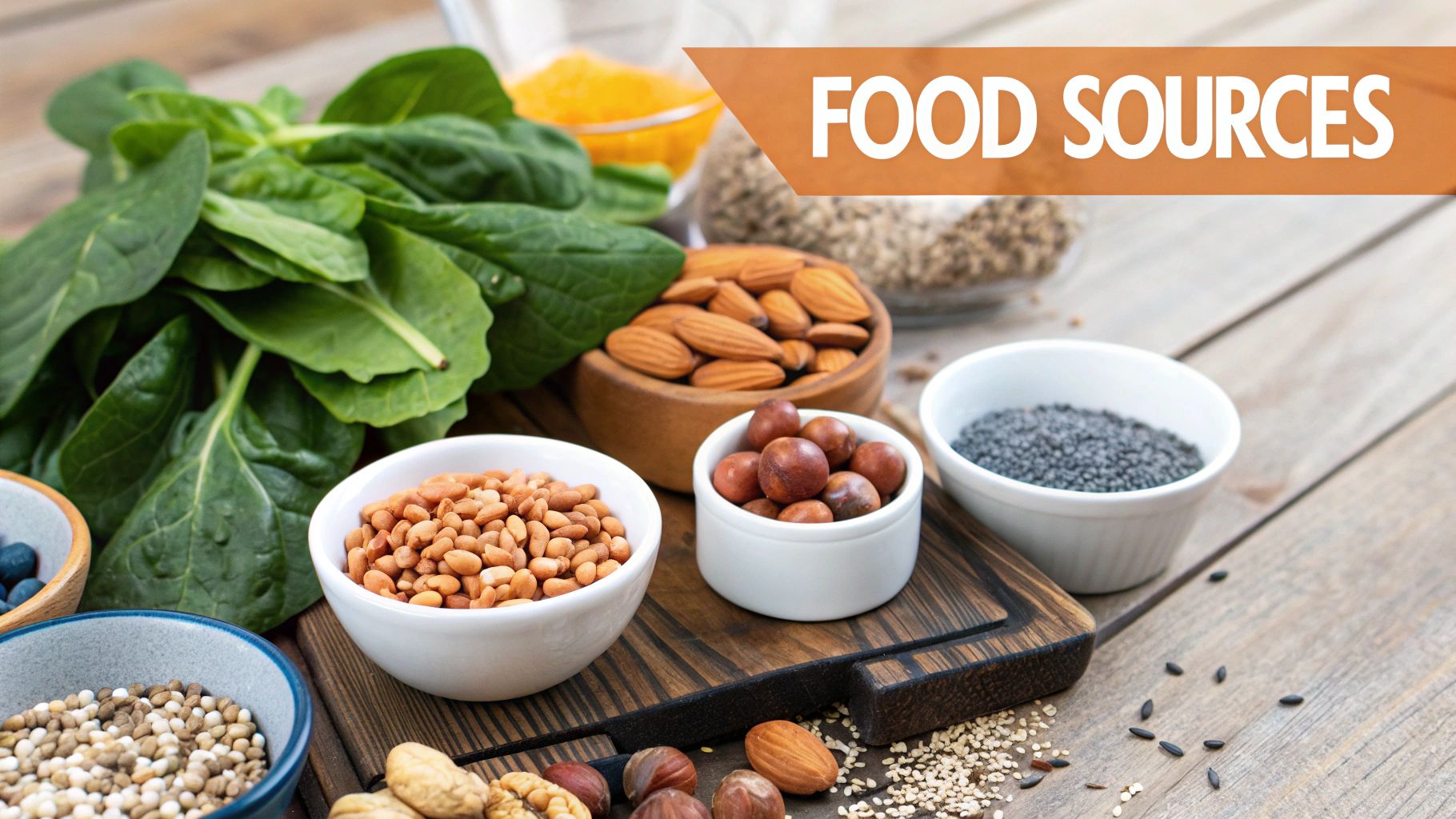
While the foundational vitamins we've discussed form the core of any good nutritional plan, sometimes you need to get more specific. Think of it as shifting from routine maintenance to targeted support for a particular goal.
By understanding which nutrients influence certain functions, you can tailor your approach to get real results, whether that’s achieving clearer skin, boosting your energy, or building a stronger immune system. Let's look at how you can use nutrition as a precise tool to address some of the most common health goals for women.
Enhancing Hair, Skin, and Nail Vitality
When your hair, skin, and nails are struggling, it’s often a sign that you’re missing the essential building blocks for strength and radiance. Brittle nails, dull skin, or thinning hair can be your body's way of telling you it needs more support. These key vitamins work from the inside out to reinforce the very structure of these tissues.
Biotin (Vitamin B7) is probably the most famous "beauty vitamin" out there. It plays a crucial role in producing keratin, the main protein that makes up your hair, skin, and nails. Think of Biotin as the lead contractor on a construction site, making sure the entire keratin framework is built to be strong and resilient.
Another major player here is Vitamin E, a powerhouse antioxidant. It acts like a bodyguard for your skin cells, protecting them from the damage caused by free radicals—those unstable molecules generated by things like UV rays and pollution. This protective shield helps keep your skin looking youthful and healthy.
Combating Fatigue and Boosting Energy
That feeling of being constantly tired is one of the most common complaints I hear from women, and it’s very often tied to nutritional gaps. Before you pour another cup of coffee, it’s worth asking if your body has the raw materials it needs to create energy in the first place. The right vitamins are absolutely essential for converting the food you eat into fuel your cells can actually use.
The B-Complex vitamins are the true engine room of energy production. This group of eight different vitamins works as a team to metabolize the carbs, fats, and proteins from your diet. They’re like the spark plugs that ignite the fuel in your cells, keeping you going all day long.
Iron is just as critical, acting as the oxygen delivery service for your entire body. Without enough iron, your cells are starved of the oxygen they need to produce energy, which leads directly to that profound exhaustion so characteristic of iron-deficiency anemia. This makes it one of the most important vitamins for women, especially during their reproductive years.
Supporting Hormonal Balance
Hormonal shifts are a natural and expected part of a woman's life, but specific nutrients can help your body navigate these changes more smoothly. Certain vitamins and minerals support the production and regulation of key hormones, which can affect everything from your mood to your menstrual cycle.
A well-supported endocrine system is better equipped to manage the natural hormonal ebbs and flows. Targeted nutrition can provide the necessary cofactors for your body to maintain a state of equilibrium.
Vitamin B6 is particularly helpful here. It’s involved in creating neurotransmitters like serotonin and dopamine, which have a huge impact on your mood. It also helps regulate the effects of estrogen and progesterone, which can potentially ease symptoms of premenstrual syndrome (PMS).
Magnesium is another powerhouse for hormonal health. It works to calm the nervous system, which can get easily overstimulated during hormonal fluctuations. In fact, research suggests it can help reduce common PMS symptoms like bloating, mood swings, and breast tenderness.
Strengthening Your Immune Defenses
A strong immune system is your body’s frontline defense against getting sick. Several vitamins are absolutely essential for keeping this complex network of cells and proteins running at peak performance. They act like drill sergeants for your immune cells, making sure they’re trained and ready to respond to any threat.
Vitamin C is famous as an immune booster for good reason. It’s a potent antioxidant that supports a variety of immune cell functions. It’s also vital for producing collagen, the protein that keeps your skin—your body’s first barrier against germs—strong and intact.
Zinc works hand-in-hand with Vitamin C to form a powerful defensive duo. This mineral is crucial for the development and function of your immune cells. Even a mild zinc deficiency can weaken your immune response, leaving you more vulnerable to infections.
Matching Vitamins to Your Health Goals
Connecting your personal wellness goals to the right nutrients can feel overwhelming. To make it easier, this table breaks down common health concerns and highlights the key vitamins that can help, along with some of the best foods to find them in.
| Health Goal | Key Vitamins | How It Helps | Best Food Sources |
|---|---|---|---|
| Stronger Hair, Skin & Nails | Biotin (B7), Vitamin E | Supports keratin production for strength and protects skin cells from damage. | Nuts, seeds, avocado, sweet potatoes, eggs |
| Increased Energy & Vitality | B-Complex Vitamins, Iron | Helps convert food into usable cellular energy and transports oxygen throughout the body. | Leafy greens (spinach), red meat, lentils, whole grains |
| Balanced Hormones & Mood | Vitamin B6, Magnesium | Aids in producing mood-regulating neurotransmitters and calms the nervous system. | Chickpeas, salmon, dark chocolate, bananas |
| Robust Immune System | Vitamin C, Vitamin D, Zinc | Strengthens immune cell function and helps maintain physical barriers against germs. | Citrus fruits, bell peppers, fatty fish, beans, seeds |
This table serves as a quick reference guide, but remember that a balanced diet is always the best foundation for getting these essential nutrients. Targeted supplementation can then fill in any specific gaps you might have.
How to Choose a High-Quality Supplement
Walking down the supplement aisle can feel completely overwhelming. With countless bottles all promising better health, how do you actually separate the good stuff from the marketing hype? Choosing the right supplement is a lot like buying a car—you need to look under the hood, not just get distracted by the shiny paint job.
Learning to read the label like a pro is the single best skill you can develop. It’s what ensures you invest in products that are safe, potent, and right for your body, helping you find the best vitamins for women's health without throwing money away.
Decode the Label for Bioavailability
The first thing to look for is bioavailability. It’s just a fancy term for how well your body can actually absorb and use a nutrient. Not all vitamin forms are created equal, and this is where many companies cut corners. A supplement might boast a huge dose, but if it’s in a form your body can’t absorb, it's useless.
Think of it like using a key. A cheap, poorly cut key might slide into the lock, but it won’t turn the deadbolt. A high-quality, bioavailable nutrient is the perfectly cut key that unlocks the benefit every time.
- Folate vs. Folic Acid: Look for methylated folate (like L-5-MTHF). This is the active form your body can use immediately. Folic acid is a synthetic version that many people's bodies struggle to convert effectively.
- Vitamin D3 vs. D2: Always choose supplements with Vitamin D3 (cholecalciferol). It’s far more effective at raising and maintaining vitamin D levels in your blood compared to D2.
Look for Third-Party Certifications
In many countries, including the U.S., the supplement industry isn’t tightly regulated. This means a manufacturer’s claims about purity and potency aren’t always guaranteed. That’s where third-party certifications come in—they act as an independent, unbiased stamp of approval.
These organizations test products to confirm that what's on the label is actually inside the bottle and that the product is free from harmful junk like heavy metals or bacteria.
Seeing a seal from a reputable third-party certifier is one of the clearest signs of a high-quality supplement. It shows the company has voluntarily put its products up for rigorous, independent inspection.
Keep an eye out for these trusted seals on the packaging:
- NSF International
- U.S. Pharmacopeia (USP)
- ConsumerLab.com
Avoid Unnecessary Fillers and Additives
Finally, flip the bottle over and scan the "other ingredients" list. Top-tier supplements keep this list short and clean. You should be wary of products packed with unnecessary fillers, artificial colors, sugars, and common allergens that do nothing for your health. These extras can sometimes cause digestive upset or even trigger allergic reactions.
Of course, before you even start supplementing, it’s a smart move to know where you stand. Understanding your current nutrient levels helps you make much more targeted and effective choices. To learn more, you might want to explore options for testing for a vitamin deficiency to get a clear picture of your body's specific needs. By combining personal health data with smart shopping, you can confidently choose a supplement that truly supports your well-being.
Common Questions About Women's Vitamins
Stepping into the world of supplements can feel a bit overwhelming, and it’s natural to have questions. Even when you know what your body needs, the practical side of things can get confusing. This section is here to clear up those lingering doubts with straightforward answers to the questions we hear most often about vitamins for women.
Our goal is to give you the confidence to make smart, effective choices for your own well-being. Let's tackle some of the most frequent queries.
Can I Get All My Vitamins from Diet Alone?
While a diet packed with whole foods is the absolute best foundation for health, it's not always enough to cover all your bases. Modern farming practices can leave soil depleted of key minerals, and certain lifestyle choices, like veganism, make it tough to get enough of specific nutrients like Vitamin B12.
In fact, micronutrient inadequacy is a major public health concern worldwide, especially for women. One huge study found that over half the global population doesn't get enough of key nutrients, with women showing higher rates of inadequate intake for iodine, B12, iron, and selenium compared to men. You can explore the full global dietary study on harvard.edu to see the data for yourself. This is where a high-quality supplement can step in as a valuable insurance policy.
Should I Take a Multivitamin or Individual Supplements?
This is a great question, and the best path forward really depends on your specific needs. Think of it like this: a multivitamin is your general safety net. It offers broad, foundational coverage to help fill small nutritional gaps you might not even know you have, making it a solid starting point for most people.
Individual supplements, on the other hand, are more like specialized tools. They deliver higher, more targeted doses of a single nutrient. This approach is perfect if you have a known deficiency (like low iron) or a specific health goal, such as taking extra Vitamin D and calcium to support bone density after menopause.
Are Gummy Vitamins as Effective as Pills?
Gummy vitamins are definitely more fun to take, but it pays to be a discerning consumer here. While they’re a great alternative for anyone who has trouble swallowing pills, they often come with a few downsides. Many are loaded with added sugars and artificial colors, and they can sometimes be less potent than their pill-based cousins.
The heat-sensitive nature of some vitamins, like Vitamin C and certain B vitamins, means they can degrade during the gummy manufacturing process, potentially reducing their effectiveness.
If you decide to go with gummies, look for brands that are third-party tested to confirm their potency and purity. And always give the ingredient list a once-over to make sure you're getting more active nutrients than sugar.
When Is the Best Time of Day to Take Vitamins?
Believe it or not, timing can make a big difference in how well your body absorbs certain nutrients. A little bit of strategy here can go a long way in maximizing the benefits you get from your supplements.
- Fat-Soluble Vitamins (A, D, E, K): These guys are best absorbed when you take them with a meal or snack that contains some fat.
- B Vitamins: Many people like taking their B-complex in the morning, since these vitamins play a key role in energy production.
- Iron: Take iron with a source of Vitamin C (like a glass of orange juice) to boost its absorption, but try to avoid taking it with calcium, which can get in the way.
Getting these simple principles down helps you build a much more effective routine. For a complete breakdown, you can learn more about the best time to take vitamins in our detailed guide.
At Elite Bioscience, we provide third-party tested, high-quality vitamin therapies to help you meet your specific health goals with confidence. Explore our targeted solutions and take control of your well-being today at https://elitebioscience.co.
QUICK SEARCH
Make an account today to start your journey towards a better and healthier lifestyle.
